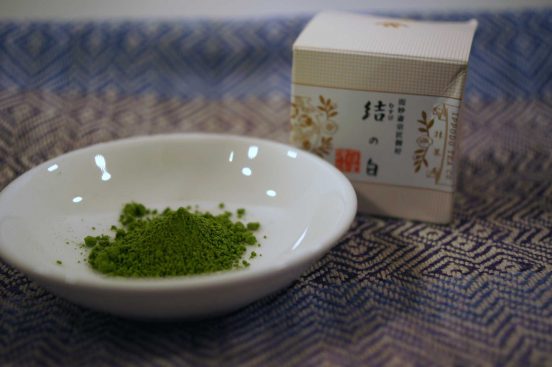Ippodo is a good source of matcha – and of a bit of insight into a special aspect of matcha, its names.
This is, for one, as Ippodo runs an online shop that is pretty well translated and ships internationally.
And they explain quite a bit there, not least what names various of their matcha have in the Urasenke and Omotesenke, two of the most famous tea schools.
Matcha by Its Names
One often hears about matcha as if any ground-up tea (at least green tea) were immediately matcha. The only differentiation often given is one between “culinary grade” matcha for cooking or baking and “ceremonial grade” for the tea ceremony.
Really, however, there are various qualities of matcha (always for drinking, as that has traditionally been the only use of it), which are reflected in its different names.
Musubi-no-shiro = Akebono-no-shiro
One of two “cheap” matcha from Ippodo I brought back from Japan to try is Musubi-no-shiro – according to its name in the Omotesenke tea school. In the Urasenke tea school, the same quality of matcha (meaning, in effect, the very same tea) is called Akebono-no-shiro.
Comparing this matcha with expensive qualities from Marukyu Koyamaen is very instructive, as it makes differences highly noticeable. Of course, it is also a bit mean.
After all, the highest quality of a product from one producer should not be compared with the cheapest qualities from another producer. That is not really what I am doing, though: I also have cheaper qualities from Marukyu Koyamaen and more expensive, more special matcha from Ippodo. We will still get to those.
The Taste
Musubi-no-shiro, anyways, is one of the cheapest among the “light” matcha, as Ippodo labels those qualities.
Compared to a better matcha, it is noticeably (more) bitter and astringent. It is also, well made as an usucha, green, grassy and refreshing.
As usual with such qualities of matcha, it lacks in rich, round and umami aroma, but as a matcha for every day, it is a good chocie, at least as long as one is already used to a bitterness typical of green tea.

Leave a Reply
You must be logged in to post a comment.